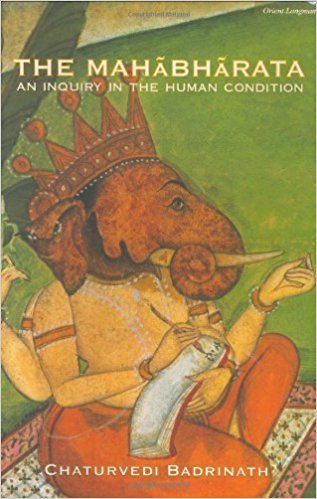Chaturvedi Badrinath’s The Mahabharata: An Inquiry in the Human Condition does what it promises in that it enquires into who we are and elicits ways in which the Mahabharata suggests that we might be better or, understand ourselves and our place in this world better. This massive tome functions as a commentary on the Mahabharata, and in doing so, falls within classical traditions of commentary as an Indian literary and philosophical genre. Important texts were always parsed in great detail by later scholars in order for the lay reader to gain access to the material therein, like, for example, the commentaries of Sankaracharya, Madhava and more recently, S. Radhakrishnan, on the meaning and content of the Bhagavad Gita. Moreover, Badrinath treats the Mahabharata as a sastra, recalling a traditional taxonomy that names it the ‘fifth Veda” and which elevates it well beyond its self-definition as itihasa and more general definitions that classify it an epic.
To emphasize the Mahabharata’s sastra-ic nature, Badrinath forgoes the immense pleasures of the text’s complex and compelling narrative to seek out its position on philosophical imperatives, such as they are. His emphasis is on samvada, the philosophical discourses that punctuate the narrative as it moves towards the apocalyptic war and its aftermath of destruction and despair.

